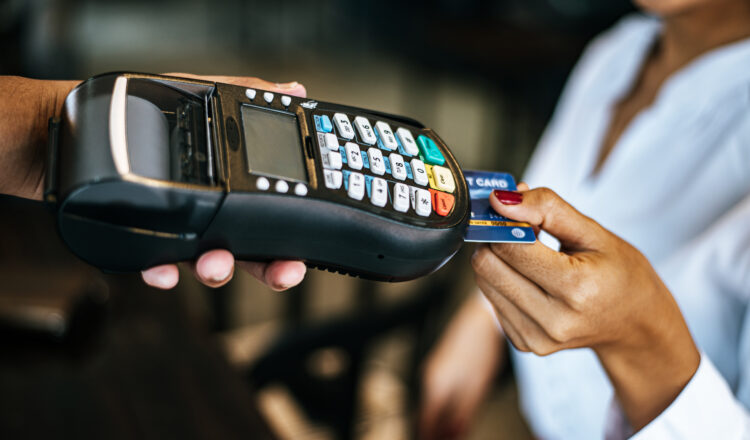From Mobile Money to Open Banking: The Evolution of Fintech in Africa

Africa’s financial story is one of bold innovation and leapfrogging. While many parts of the world moved slowly from traditional banking to digital finance, Africa skipped entire stages – jumping from cash-based economies to mobile money dominance almost overnight. But the continent isn’t stopping there. As new technologies, regulations, and fintech ecosystems evolve, Africa is stepping into its next big phase: open banking. This article explores how we got here – from the mobile money revolution to the rise of fintech platforms – and why open banking represents the next frontier of inclusive, interconnected finance across the continent.
The Foundation: Mobile Money and Financial Inclusion
When Safaricom launched M-Pesa in Kenya in 2007, few predicted it would redefine finance for an entire continent. Suddenly, millions of people without bank accounts could send, receive, and store money through a simple feature phone. No banks. No branches. Just trust technology and accessibility.
By 2025, mobile money users across Africa were expected to exceed 600 million, with transactions surpassing $800 billion annually, according to the GSMA. The model proved that when technology meets necessity, innovation thrives.
Mobile money became the financial lifeline for:
- Rural communities with no access to traditional banking;
- Small merchants accepting payments instantly and securely;
- Cross-border trade, with faster remittances and less dependency on cash;
- Governments and NGOs, distributing aid directly into mobile wallets.
But mobile money, as transformative as it was, also had limitations. Each service was largely siloed – locked into specific networks, mobile operators, and jurisdictions. True interoperability and access to broader financial services remained limited. That’s where fintech entered the scene.
The Rise of Fintech Platforms: Beyond Simple Transactions
Over the last decade, fintech companies began bridging the gaps left by mobile money. They brought APIs, digital wallets, analytics, and merchant tools – building a new digital economy layer by layer.
Platforms like Flutterwave, Chipper Cash, Unipesa, and Paystack emerged to connect mobile money, cards, and banks into unified systems. These innovators saw a larger opportunity: to make digital finance frictionless, borderless, and accessible.
For small and medium-sized enterprises (SMEs), this was a revolutionary development. Instead of juggling multiple mobile operators or payment partners, they could integrate with a single API to:
- Accept payments from any source – mobile, card, or bank;
- Access working capital through digital credit products;
- Manage transactions in real time with data insights and dashboards.
This “platformization” of finance transformed fintech from being product-driven (offering one service) to ecosystem-driven (building entire infrastructures). Companies like Unipesa are at the forefront of this transformation, ensuring businesses across Africa can transact seamlessly across borders and systems.
The Shift Toward Interoperability
If mobile money was Africa’s financial awakening, interoperability is its next evolution.
The biggest challenge for years has been fragmentation. Users on one network couldn’t easily send money to another. Businesses faced hurdles in accepting payments from customers outside their ecosystem. Regulators struggled to ensure smooth, secure cross-platform interactions.
Today, interoperability is not just a technical goal — it’s a strategic necessity.
Across Africa, we see growing efforts toward financial integration:
- The Pan-African Payment and Settlement System (PAPSS) enables cross-border payments in local currencies.
- Central banks in Kenya, Nigeria, and South Africa are pushing interoperability between banks and mobile wallets.
- Fintech APIs, like those offered by Unipesa, now connect multiple payment channels under one roof.
This shift sets the stage for open banking, where customer data and financial tools can flow freely, securely, and with consent across different platforms and services.
What Is Open Banking – and Why It Matters for Africa
Open banking is about breaking down the walls between financial institutions. Instead of banks and fintechs hoarding customer data, they share it securely (with permission) to enable better, more personalized financial services.
In practice, it means:
- A business can automatically connect its accounting software to its payment gateway.
- A user can view and manage multiple accounts – mobile, bank, and digital wallet — in one place.
- Credit scoring can be more accurate and inclusive, using transaction data rather than outdated formal credit checks.
In Europe and the U.K., open banking was driven by regulation. In Africa, it’s being driven by opportunity and necessity.
Millions of Africans are digitally active but remain underbanked. Open banking could unlock entirely new layers of value:
- Better credit access for SMEs;
- Personalized savings and investment tools;
- Faster onboarding for fintech startups through standardized APIs;
- A unified financial identity that follows users across platforms.
Unipesa and the Future of Connected Finance
At the heart of Africa’s open banking movement are platforms like Unipesa, designed to bridge traditional and digital finance seamlessly. Unipesa isn’t just a payment processor – it’s an infrastructure builder empowering businesses to access the financial ecosystem without friction.
Through Unipesa’s integrated payment API, businesses can:
- Connect mobile money, bank transfers, and cards into a single platform;
- Gain real-time insights into transaction performance and cash flow;
- Expand into new markets without rebuilding their payment stack from scratch.
This is the essence of the fintech future: connection, not competition. By simplifying integration and promoting interoperability, Unipesa helps small and mid-sized businesses grow faster — not just in their home markets but across borders.
Regulation and Collaboration: The Next Critical Step
As open banking gains traction, collaboration between regulators, fintechs, and banks becomes essential. Without clear frameworks, innovation risks outpacing compliance — leading to security vulnerabilities and data misuse.
Fortunately, progress is happening:
- Nigeria’s Open Banking Framework (2021) established standardized API rules for financial data sharing.
- Kenya’s Central Bank has launched regulatory sandboxes for fintech testing.
- The African Continental Free Trade Area (AfCFTA) supports digital trade harmonization, encouraging payment interoperability.
These efforts show that the future of fintech in Africa will depend on collaboration, not isolation. The winners will be those who build open, trusted systems that balance innovation with regulation.
What’s Next: The Age of Open Finance
Open banking is only the beginning. The next phase – open finance – will expand beyond banks to include insurance, pensions, investments, and even decentralized finance (DeFi).
Imagine an African entrepreneur using a single dashboard to:
- Receive payments from global clients,
- Automatically invest profits,
- Access instant microloans,
- And ensure their operations – all through connected APIs.
That’s not a distant dream. It’s the direction fintech infrastructure is heading – and companies like Unipesa are already building the rails to make it happen.
Conclusion: Building Africa’s Financial Future Together
Africa’s journey from mobile money to open banking reflects something bigger than technological evolution — it’s a story of empowerment, collaboration, and resilience.
Mobile money brought inclusion.
Fintech platforms brought accessibility.
Now, open banking promises integration – a unified financial system where businesses and consumers thrive together.
For African SMEs, the message is clear: the future belongs to those who embrace connection. With partners like Unipesa leading the charge, Africa’s fintech ecosystem is not just catching up – it’s setting the pace for the rest of the world.




